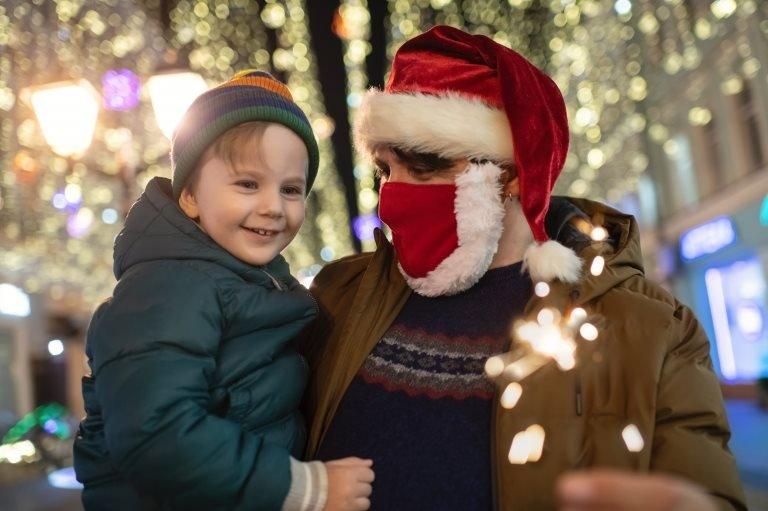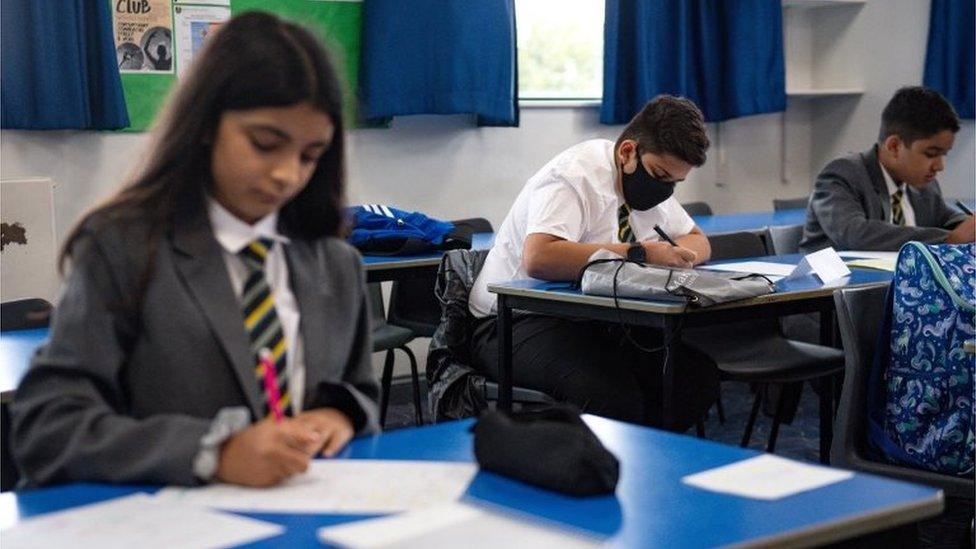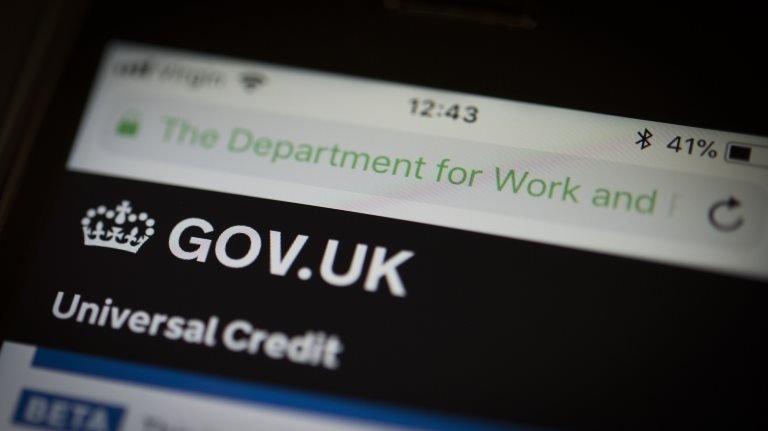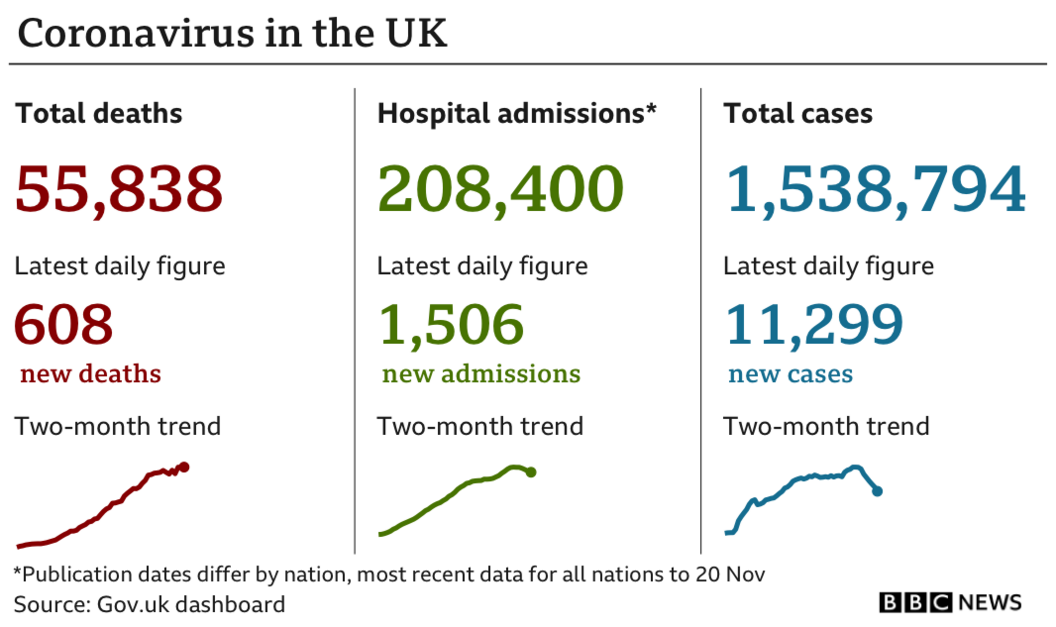Covid-19: Three-household Christmas plan and more pupils out of school
- Published
Here are five things you need to know about the coronavirus pandemic this Tuesday evening. We'll have another update for you tomorrow morning.
1. UK leaders agree three-household Christmas plan
Up to three households will be able to mix indoors during a five-day Christmas period of 23-27 December, under a plan agreed by the leaders of England, Scotland, Wales and Northern Ireland.
It comes after agreement was reached at a Cobra meeting bringing together the UK government and the devolved administrations.
People will be able to mix in homes but not pubs or restaurants.
Earlier, Transport Secretary Grant Shapps warned Christmas travellers should plan journeys carefully and prepare for restrictions on passenger numbers.
Wondering how Christmas might look this year? Here are a few things that may be different.


2. School attendance drops as more pupils self-isolate
More than one in five secondary school pupils in England missed school last week, figures out today show.
The weekly data from the Department for Education shows overall attendance was down to 83% of pupils, with almost 900,000 children out of school because of either testing positive for coronavirus or coming into contact with a positive case.
The DfE says keeping schools open is a "priority". But Mary Bousted, co-leader of the National Education Union said the situation had "reached crisis point".
The rules for self-isolating mean pupils have to stay home for at least 14 days. For more on the rules for self-isolating click here.


3. Number of UK deaths 'a fifth higher than normal'
Latest figures show there were almost 14,000 deaths in the week ending 13 November, with 2,838 of these involving Covid - 600 more than the previous week.
Data compiled by the Office for National Statistics show north-west England and Yorkshire were the worst hit for excess deaths - both regions were more than a third above expected levels.
By comparison, the number in south-east England was 2% above the five-year average.
But there is hope that the rise may soon start slowing as the daily figures show deaths are not rising as quickly as they were.
Click here if you want to know how many cases there have been in your area.


4. Benefit scams worth £1bn foiled during lockdown
Organised crime groups nearly got away with benefit scams of as much as £1bn as they attempted to take advantage of looser benefit rules during the pandemic, BBC News has discovered.
The fraudsters were trying to exploit looser rules introduced to cope with a surge of universal credit claims.
Before the scam was spotted, officials unwittingly confirmed thousands of stolen identities. It was foiled when a junior civil servant working with High Street banks noticed dozens of claims for universal credit had been made asking for money to be paid into the same bank account.
BBC News has asked the Department for Work and Pensions for a response.


5. Director apologises for unmuted Zoom remarks
The etiquette of the video call has been a steep learning curve for some. Director Tristram Shapeero has had to apologise for failing to hit the mute button while commenting on an actor's "tiny apartment".
Shapeero, who has worked on Brooklyn Nine-Nine and Never Have I Ever among others, was auditioning Euphoria actor Lukas Gage via Zoom when he was heard saying: "These people live in these tiny apartments. Like I'm looking at his, you know, background and he's got his TV... "
Gage then interjects: "I know it's a [rubbish] apartment that's why [you should] give me this job so I can get a better one."
Do you know the etiquette of video calling?

And don't forget...
You can find more information, advice and guides on our coronavirus page.
And we've had a look at what England's new lockdown rules will be.



What questions do you have about coronavirus?
In some cases, your question will be published, displaying your name, age and location as you provide it, unless you state otherwise. Your contact details will never be published. Please ensure you have read our terms & conditions and privacy policy.
Use this form to ask your question:
If you are reading this page and can't see the form you will need to visit the mobile version of the BBC website to submit your question or send them via email to YourQuestions@bbc.co.uk, external. Please include your name, age and location with any question you send in.

HOW TO VACCINATE THE WORLD: A brand new podcast exploring the global race to create a vaccine to end the Covid-19 pandemic
NEW DRAMA 'INDUSTRY': Colleagues, lovers or enemies? Escape with this stylish new drama directed by Lena Dunham
